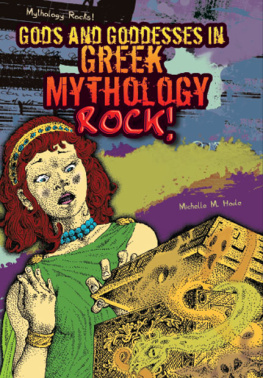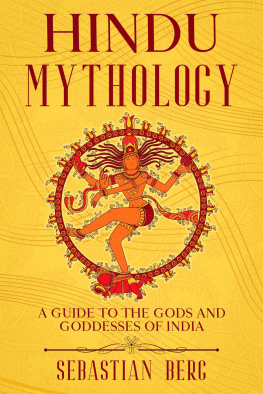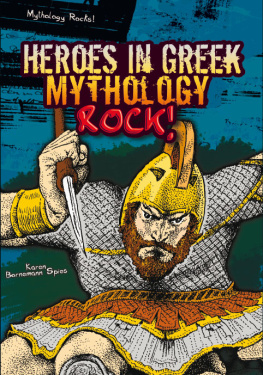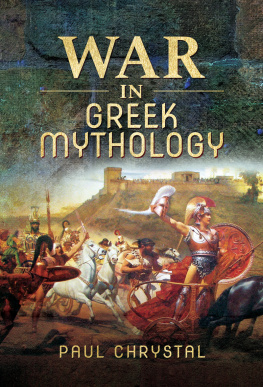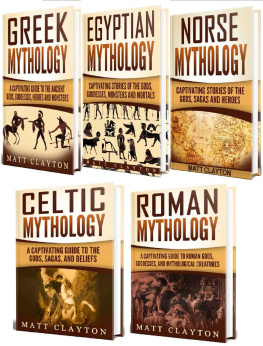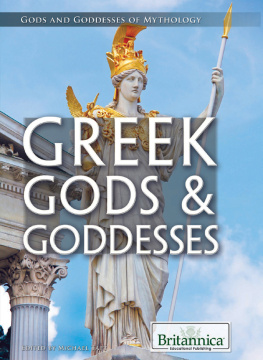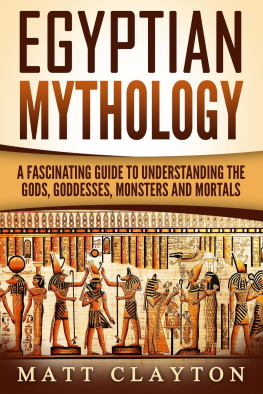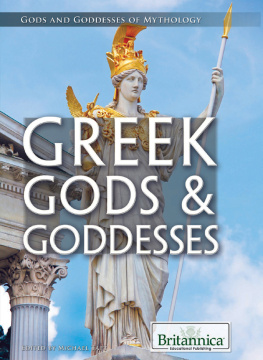The gods and goddesses of Greek mythology have inspired painting, sculpture, literature and music, books and movies. Their stories continue to influence Western culture, despite the fact that the civilization that created them disappeared thousands of years ago.
Author Michelle M. Houle skillfully weaves together the threads of the gods and goddesses wars, love affairs, and personal quests for power, as well as their very creation. Each story is complemented by expert commentary written by scholars and specialists on Greek mythology.
About the Author
Author Michelle M. Houle has been interested in Greek mythology since childhood. She majored in English and classics at Cornell University during which time she had the opportunity to study in Athens, Greece.
Illustrator William Sauts Bock is the illustrator of many books. His illustrations have been honored by the American Institute of Graphic Arts. Many of his portraits are in private collections all over the world.
The word myth comes from the Greek word mythos, which means story or speech. Myth is often the word used to describe a story that explains events or objects that occur in nature, such as the creation of certain flowers or animals, the location of deserts or oceans, and even the origin and cycle of the seasons. Myths may also be stories about the origins of customs or traditions.
While some real events or characters may be represented in myths, these stories should not be read as if they are history. Though there may be elements of fact intertwined in their telling, these stories happen in a time and place that does not really exist, regardless of how real the setting may seem.
The Greek Landscape
The landscape of Greece has always played a great role in the development of its people and its myths. The country of Greece is located on the European continent to the east of Italy in the Mediterranean Sea. It is a country surrounded by many islandssome very small and some quite large, like the island of Crete. The Peloponnesus is a peninsula in the southern part of Greece. It is connected to the mainland by a thin strip of land, an isthmus, that is watched over by the old hill city of Corinth. The Peloponnesus is home to the important cities of Sparta and Olympia. Athens, on the other hand, is on the southern tip of the mainland in a region known as Attica.
There are many hills and mountains rolling across the Greek countryside. Therefore, while it might be snowy and cold in one part of the country, it can also be hot and dry in another. On the whole, however, the weather in Greece is warm, with sunny skies and relatively mild winters. The soil is dry and rocky due to the intense sun and rolling hills, and farming has always been difficult. Grains, such as wheat and barley, and fruits, such as olives and grapes, have been common crops throughout history. However, because it was difficult to tease crops out of this rough soil, the people who live in this area have also always depended, at least in part, on the sea.
Thousands of years ago, the Greeks were already great seafarers, and they sailed all over the Mediterranean. Because of their travels, the Greeks came into contact with people of many different backgrounds. They met and traded goods with people in Asia Minor and Africa, Europe and the Middle East. Every time the sailors came into contact with people from different backgrounds, they listened to the foreigners stories and added them to their own collection. The extensive travel of early Greek culture helps to explain why there are many different versions of each myth, and why the myths of many different cultures often seem very similar.
History
People lived in the area now known as Greece for thousands of years, but very little is known about the areas earliest inhabitants. Archaeology, or the study of ancient civilizations, has taught scholars a little bit about the people who lived there between 6000 and 3000 B.C. Scholars believe that the early Greeks relied on farming and lived in small villagelike communities.
The years 3000 to 1600 B.C. are often considered the beginning of Greek culture and Western civilization in general. Scholars do not know much about the daily lives and customs of the people who lived on the mainland of Greece during this period. Like their predecessors, they seem to have been farmers. A lot of information, however, exists about the civilization then thriving on the island of Crete, where the legendary King Minos was thought to have lived. Beginning in about 2200 B.C. , the people of Crete, called the Minoans, built fabulous palaces and ruled the seas with a strong hand.
In about 1650 B.C. , Mycenae became an important center of Greek culture. Mycenae was a wealthy and powerful city, located in the Peloponnesus. The people who lived there spoke a language that is similar to modern Greek. Other cities also began to blossom on the mainland. Thebes, Sparta, and Athens are just a few of the cities that were founded in the same era as Mycenae. Though the palaces of the Minoans on Crete were destroyed in about 1450 B.C. , Minoan civilization had a great influence on its mainland neighbors in terms of art, religion, and culture.
As their civilization spread, the people of Greece lived in towns that were independent of each other. The people who lived in what is known today as Greece were united by two factors: they spoke roughly the same language, and they thought of themselves as Hellenes, or fellow descendants of Hellen, the legendary founder of the Greek people. (Today the modern Greek word for the country of Greece is Hellas.) There was no single ruler, and there were often wars between the different communities. It is important to remember that the people we call Greeks today were, at one time, not unified at all.
In the eleventh century B.C. , an unknown enemy destroyed the ancient city of Troy, located in the western part of Asia Minor. It was against this city that the Greeks supposedly fought as a single group in order to rescue Helen, the wife of Menelaus, the king of Sparta. Soon after this event, many major cities on the Greek mainland were destroyed. Later, Greeks blamed this massive destruction on an invading group of Greek-speakers whom they called the Dorians.
In about 800 B.C. , the Greek alphabet was created, using the Phoenician alphabet as a model. This invention began a period of great political and commercial development on the Greek mainland and the surrounding islands. At that time, the various communities began to think of themselves as living in separate political entities known as city-states. The Greek word for city-state is polis.
In 508 B.C. , Athens became the worlds first democracy when free adult males were allowed to vote on matters concerning the city. The word democracy comes from the Greek word democratia, which means ruled by the demos, or the people. It is important to note, however, that only citizens could vote in this democracy, and not everyone living in Athens was considered a citizen. At that time, many Athenian families owned slaves, who were often captives of war. Slaves were not considered citizens, and, therefore, not allowed to vote, and women held a nonvoting status as citizens.
During the rise of Athenian democracy during the sixth and fifth centuries B.C. , great strides were made in the fields of philosophy, history, medicine, and the arts. It was a period of great development, especially in Athens, where some of the worlds most influential thinkers could be found. This era is often referred to as the Golden Age of Greece or the Golden Age of Pericles, referring to the ruler at the time.

